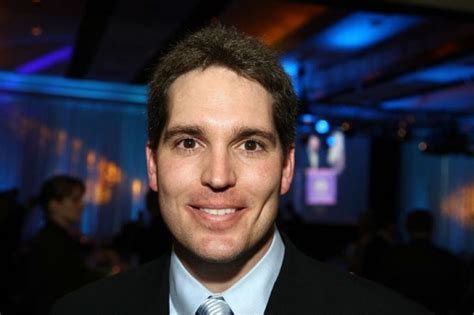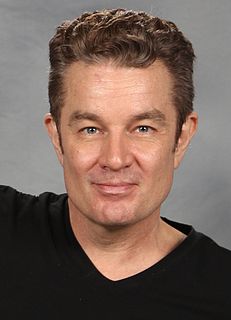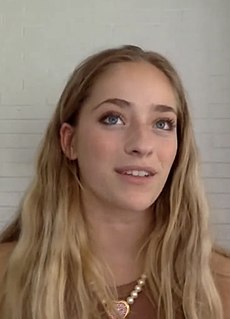A Quote by Marc Rotenberg
There's a growing sense that the online ad industry is out of control from a privacy perspective and that some rules need to be put in place.
Related Quotes
Imagine you're watching '30 Rock' and an ad comes on, but you don't like it. With Hulu Ad Swap, you can actually click the button and trade out the ad. So for the first time ever, a consumer is in control of their ad experience. For us, it's a big win because users are able to take control of what they see.
You know, people like Hillary Clinton think you grow the economy by growing Washington. I think most of us in America understand that people, not the government creates jobs. And one of the best things we can do is get the government out of the way, put in reign in all the out of control regulations, put in place and all of the above energy policy, give people the education, the skills that the need to succeed, and lower the tax rate and reform the tax code.
I'm worried about privacy because of the young people who don't give a damn about their privacy, who are prepared to put their entire private lives online. They put stuff on Facebook that 15 years from now will prevent them from getting the jobs they want. They don't understand that they are mortgaging their future for a quick laugh from a friend.
When people say, "Show your face, you're not ugly." I want to say, "I know. I'm not doing it because I think I'm ugly; I'm trying to have some control over my image. And I'm allowed to maintain some modicum of privacy. But also I'd like not to be picked apart or for people to observe when I put on ten pounds or I have a hair extension out of place." Most people don't have to be under that pressure, and I'd like to be one of them. I don't go on Twitter. Because when people say things like, I don't know, "I hope you get cancer and die," it hurts my feelings.
I'm not an ad-libber. If I'm asked to ad-lib, I can ad-lib forever and it's really fun to do that, but I find that well-written scripts are put together very carefully. Once you start to ad-lib and add words to sentences, there's a slacking that happens. When it's good writing, it's taut. I'm not judging people who do ad-lib.
I don't think he would have had any trouble answering Justice Sonia Sotomayor's excellent challenge in a case involving GPS surveillance. She said we need an alternative to this whole way of thinking about the privacy now which says that when you give data to a third party, you have no expectations of privacy. And [Louis] Brandeis would have said nonsense, of course you have expectations of privacy because it's intellectual privacy that has to be protected. That's my attempt to channel him on some of those privacy questions.
Talking about the fact that I get depressed or that I've had some suicidal issues in my life is not easy. I don't know of many comedians who are going all in on that. In some sense, I think I've maybe sacrificed some momentum doing that. In another sense, I'm in a place where if I can talk about that and if it helps some kid in a way that gives them some help that wasn't available to me when I was a kid, then I gotta do that. Put being a good person first. If you have a platform, use it for stuff that's noble and good and worth putting out in the world.
































